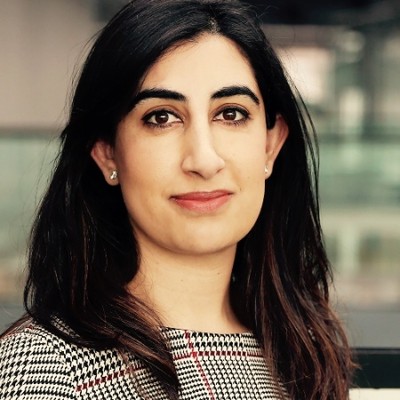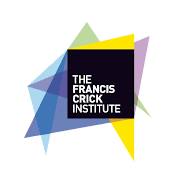- English
- DEUTSCH
- SPANISH
- FRENCH



As the Head of Commercial Strategy and Portfolio at The Francis Crick Institute, Basma Jeelani is shaping a new role at the Institute, expanding the translational and commercial offering from The Crick. We spoke with Basma about her experience working in the science and research sector.

… Basma explained. “There are many changes happening around us including regulatory and policy shifts, evolution of public-private partnerships, development of ecosystems, continued growth of startup and spinout activity, expansion of research expertise and infrastructure. All of these provide opportunities for organisations like The Crick to diversify approaches to financial sustainability, external engagement, and future reinvestment into research and innovation”.
Contrary to common perceptions of STEM fields, Basma has experienced strong female representation throughout her career. “I have been fortunate to have inspiring female role models both in my family and throughout my professional journey. Learning from them and observing how they navigate challenges such as career advancement, work-life balance, and especially leadership development has been crucial for my growth”.

Flexibility stands at the centre of Basma’s workplace philosophy, which she sees as universally beneficial. “Flexibility comes in many forms and may mean different things to different people, at different stages of life”. For Basma, flexibility proved crucial during significant life changes, allowing her to adapt and thrive in various circumstances. Basma’s leadership approach begins with placing trust rather than verification. “My starting point is always focusing on delivery excellence. I trust individuals to be best placed to know how they can manage their time whilst not impacting their productivity”. By empowering her team members to take ownership, Basma has repeatedly managed to build healthy, high-performing teams. “This approach has proven effective in creating a culture of mutual respect and accountability, where team members feel valued and motivated to achieve their best work.”




Despite progress, Basma recognises ongoing challenges. Referencing research on women’s advancement, she noted that “there has been effort over the past 10 years to promote women from entry roles to leadership positions. However, organisations seem to be in a state of limbo now where things aren’t progressing as quickly as they should”.
To maintain momentum, Basma advocates for calculated risk-taking. “Women should take more risks. Why do we shy away from that?” She spoke of the power of visibility in encouraging this. “Having gone through different stages in my life and career, I feel as a leader it’s my responsibility to share my stories with individuals at the workplace to normalise conversations, help them navigate challenges, play a championing role and hopefully inspire them. All of us go through similar sorts of challenges at different times in our lives. It’s important to recognise this and support each other by connecting at a human level”.
Basma also addressed the internal pressures many professionals face. “As high achievers, we want to do well and create impact. This can sometimes create unnecessary pressure and many a time tends to be self-inflicted”. Basma’s experience has taught her a different approach: “Over time, what I have found is just by pacing ourselves more and taking that kind of pressure off, has much longer-term returns”.
Through both her words and leadership example, Basma demonstrates that inclusive environments in STEM require both structural flexibility and a recalibration of personal expectations. Her insights and approach serve as a valuable reminder that achieving excellence is not just about pushing harder, but also about finding balance and supporting each other along the way.
Thank you, Basma, for your time and reflections.
Interview with Esther Elbro, Principal Project Manager, Research, Technology & Innovation
Goran is a Partner & Sector Lead, Health & Life Sciences.
His experience includes working on senior level strategic appointments for a range of higher education institutions, research institutes and centres, research-led organisations, public-private partnerships and biotech companies, and on global professorial and chair level appointments across various disciplines.
Goran holds an MSc in Molecular Biology from University of Zagreb and a PhD in Molecular and Cell Biology from University of Geneva.
Prior to joining Perrett Laver, Goran was a Postdoctoral Researcher at Faculty of Medicine, Imperial College London.